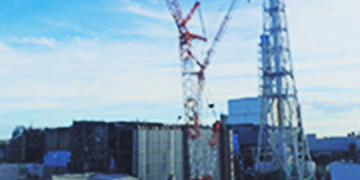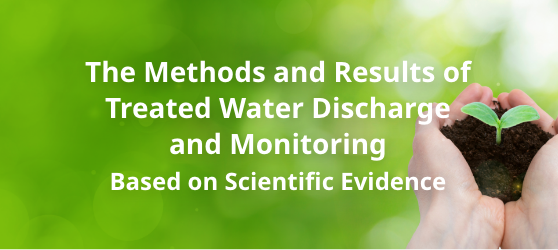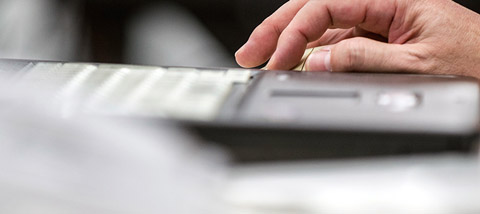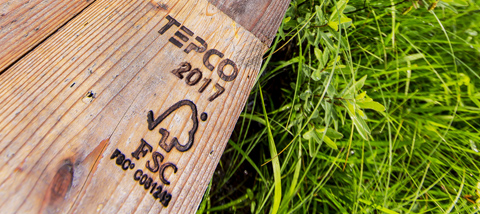Unit 2 Fuel Debris Retrieval
In Unit 2, the fuel and the metal cladding that forms the outer jacket of the fuel rods melted, then re-solidified as fuel debris. The Unit 2 is chosen as the first unit to conduct the fuel debris retrieval as we consider the situation such as safety, reliability, rapidity, and progress of spent fuel removal. The preparations are currently underway in order to begin the fuel debris retrieval.
Unit 2 Status
-
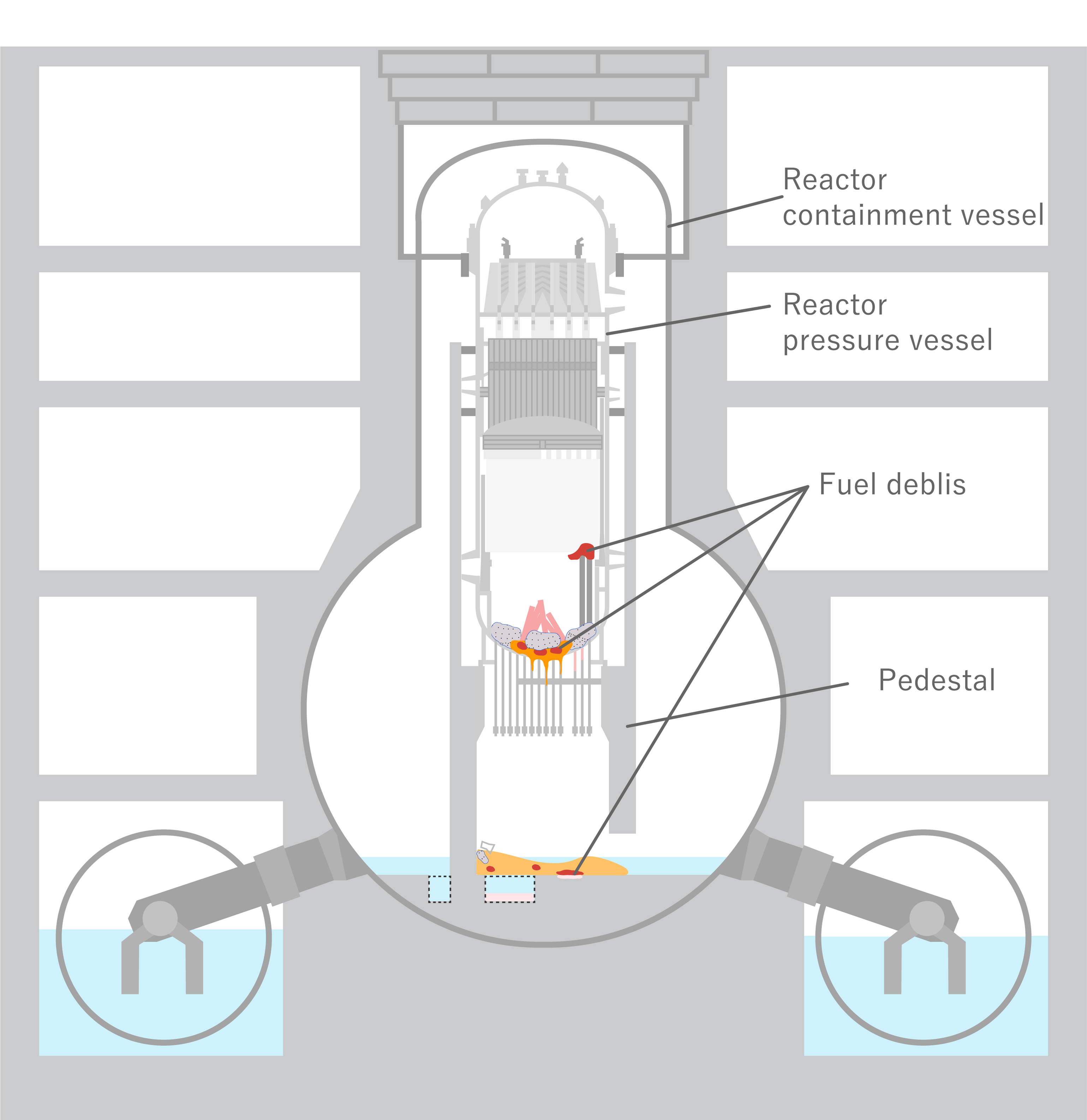
Survey inside containment vessel
—Survey using robots, etc.—
The containment vessel cannot be accessed readily by people because of the high radiation levels. Information inside the containment vessel is therefore being gathered using robots and other equipment that can be operated remotely. The surveys to date have obtained video and other images inside the containment vessel (inside the pedestal).
—Measurement by muon tomography—
Muons are cosmic rays that do not easily penetrate objects with large mass. They are thus used to identify the location of fuel debris, for example, from outside the reactor building.
Efforts to Date
Surveys already conducted inside containment vessel
| Time | Investigation | Release |
|---|---|---|
| January 2012 (1st) | Measure the temperature inside the Primary Containment Vessel | January 2012 |
| March 2012 (2nd) | Measure the water temperature and dose rate inside the Primary Containment Vessel | |
| February 2013 to June 2014 (3rd) | Collect sample of stagnant water inside the Primary Containment Vessel and measure the water level | |
| January to February 2017 (4th) | Measure the water temperature and dose rate inside the Primary Containment Vessel | |
| January 2018 (5th) | Measure the water temperature and dose rate inside the Primary Containment Vessel | February 2018 |
| February 2019 (6th) |
Measure the water temperature and dose rate inside the Primary Containment Vessel Contact investigation to the deposits |
February 2019 |
The status of progress on the mid- to long-term roadmap (decommissioning and contaminated water measures team meetings/secretariat conferences) is updated in monthly progress reports and other materials.
See the material here for details.





